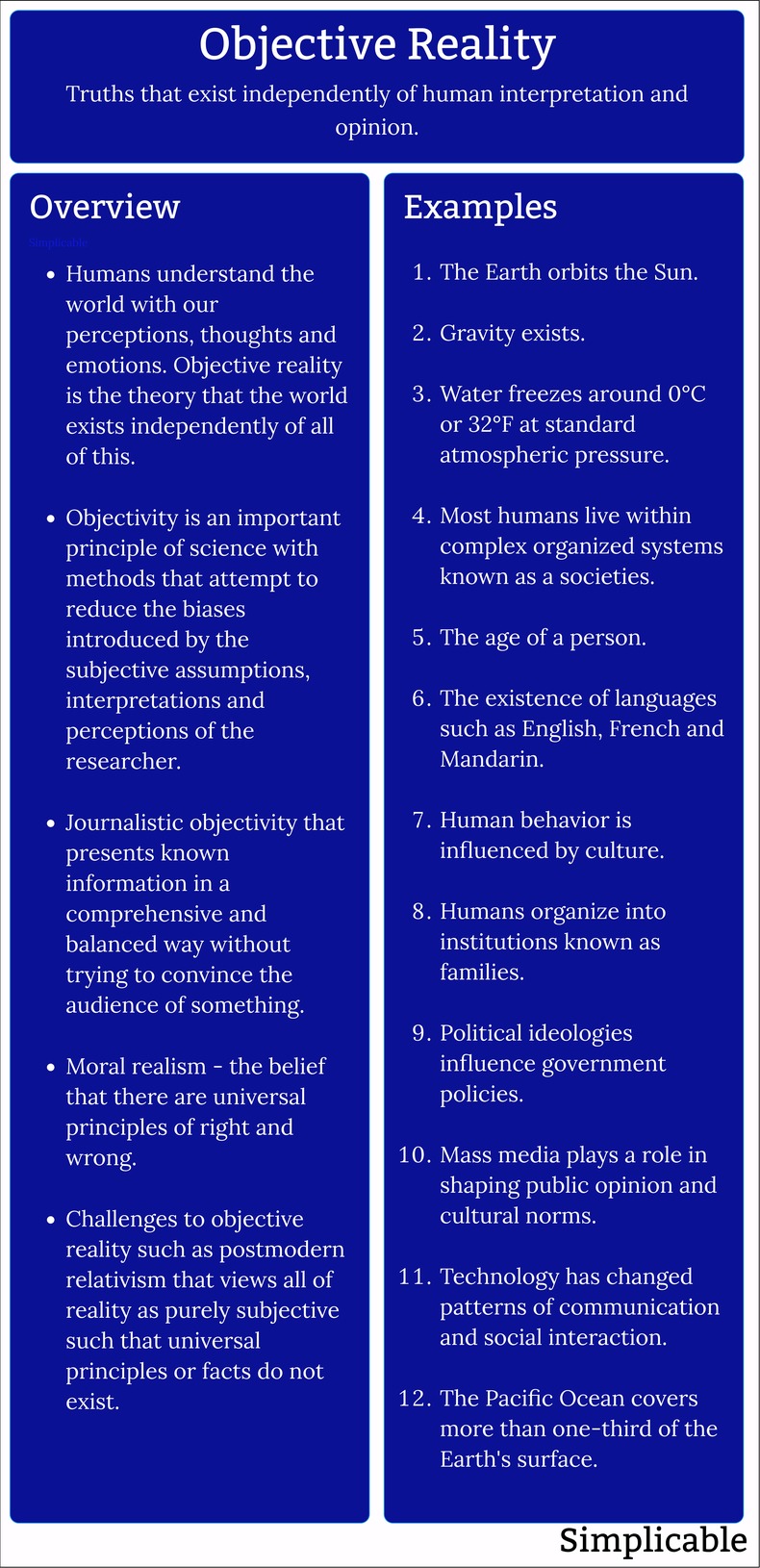Scientific Objectivity
Science is fundamentally based on the idea that there are universal truths that can be determined with a process of systematic experimentation, observation and analysis. Scientific objectivity is the principle that science be based on repeatable, unbiased observations that are always open to challenge and peer review.Journalistic Objectivity
Journalistic objectivity is the principle that the truth can be determined with diligent research and unbiased analysis of objective evidence. This is supposed to be a basic ethical requirement of journalists. In practice, much of the news is colored by ideology and the influence of interests such as advertisers.Moral Realism
Moral realism is the idea that there are basic principles of right and wrong that do not vary by person or culture. This is the basis of things such as religion, constitutions, rights, freedoms and law.Relativism
Relativism is the idea that objective reality doesn't exist such that individuals and culture are free to define every aspect of reality.Postmodernism
Postmodernism is a broad academic trend based on relativism. Generally speaking, social sciences are heavily influenced by relativism whereby individuals define reality. Science, technology, engineering and mathematics are less influenced by relativism because objective facts are important if you're designing an aircraft.Naive Realism
Naive realism is the tendency to believe that the universe is exactly as you perceive it. For example, the view that your own ideas are completely true and that all people who disagree with you are inherently wrong. This view would be validated by postmodernism and relativism.Idealism
Idealism is the philosophy that ideas define reality and not the other way around. For example, the observation that stories can become true.Skepticism
Skepticism is the idea that if universal truths exist they are unknowable. This can be essentially proven with thought experiments such as the idea that we could all be trapped in a simulation that completely differs from reality. This isn't particularly useful and can be overcome with the one assumption that our perceptions are somewhat reflective of reality.Subjective Reality
Subjective reality denotes the fact that all perception is shaped by the mind. If you perceive a flower as blue, this is because your mind maps a particular combination of wavelengths of visible light to the abstract concept of blue. As such, blue doesn't truly exist beyond the mind†.Quantum Physics
Historically, science viewed the universe as a deterministic machine that could be predicted with accuracy. Modern science has largely invalidated this view. For example, quantum physics has revealed that at the smallest scale, the universe is probabilistic and chaotic. In other words, objective reality can't be fully known because the universe is somewhat random and is influenced by observation itself.Pragmatism
Pragmatism is the view that something is true if it is true for all practical purposes. For example, blue exists as an important element of human perception and experience -- even if the universe has no such concept.Summary
Objective reality is the theory that the universe exists beyond human perceptions, opinion and interpretations.
Notes
† The mind ignores non-visible wavelengths of light and non-dominant wavelengths such that color perception doesn't map accurately to the realities of light.| Overview: Objective Reality | ||
Type | ||
Definition | The idea that there are universal truths that apply to all. | |
Related Concepts | ||































